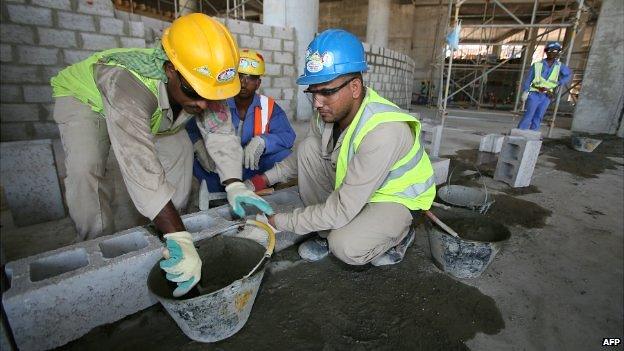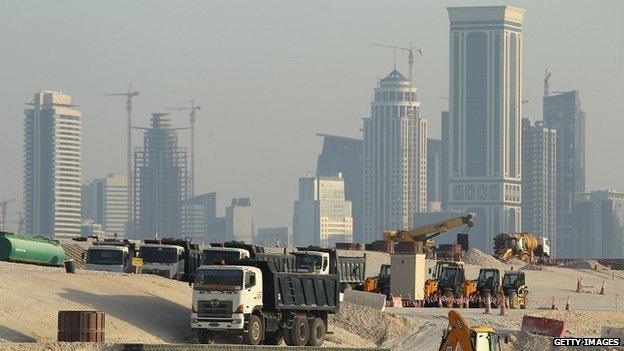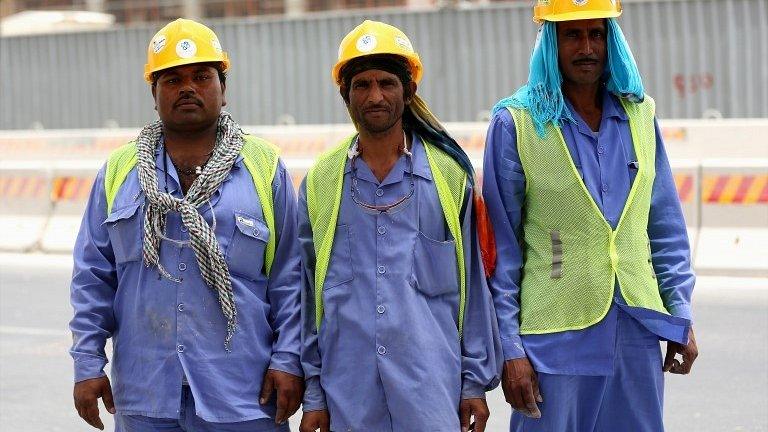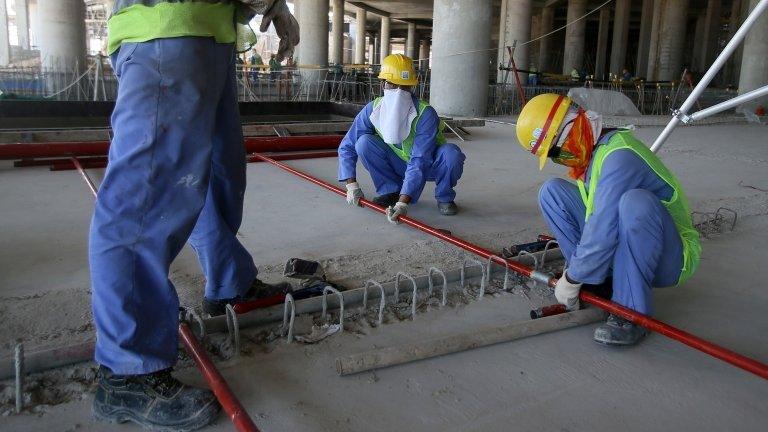Qatar World Cup: officials 'dismayed' by unpaid workers
- Published

Foreign workers now make up the bulk of the workforce in Qatar but say they have few rights
Organisers of the 2022 World Cup in Qatar say they are "dismayed" by claims that migrant workers who fitted their offices are still waiting to be paid.
Workers from Nepal, Sri Lanka and India say they are still owed 13 months' wages after the contractor collapsed.
Some workers had been left stranded in the country, working for as little as $0.85 a day (50p), The Guardian said, external.
In May, Qatar vowed to improve the rights of migrants in the Gulf state amid growing alarm at their treatment.
But an investigation by the British newspaper found migrants who had worked on the Qatar 2022 offices in the Al Bidda skyscraper in Doha were still waiting for their pay.

The Gulf state is in the middle of a massive infrastructure boost ahead of the 2022 football tournament
The project, which The Guardian says was commissioned by the Qatari government, was carried out by migrants working for the contractor Lee Trading.
It cost $4.25m (£2.5m) and the offices were fitted with expensive etched glass and handmade Italian furniture.
But Lee Trading's collapse led to Amnesty International raising the case with Qatar's prime minister last November after many of the workers were left stranded.
The situation has remained the same and five of the workers have since been arrested and imprisoned after being left without ID papers.
In a statement released on Monday, Qatar 2022 said it was "heavily dismayed to learn of the behaviour of Lee Trading with regard to the timely payment of its workers."
Officials said they relayed the concerns raised by Amnesty to the "relevant authorities" last year and insisted they would "continue to press for a speedy and fair conclusion to all cases."
Qatar moved to change controversial laws on foreign workers in May that tied migrant workers to a single employer.
Human rights campaigners had accused that sponsorship system of being akin to modern-day slavery.
The Gulf state has seen an influx of foreign workers ahead of the football tournament and expatriates now make up the bulk of the workforce in the country.
- Published14 May 2014

- Published7 March 2014
- Attribution
- Published11 February 2014

- Published18 November 2013
- Published17 November 2013

- Published3 December 2018